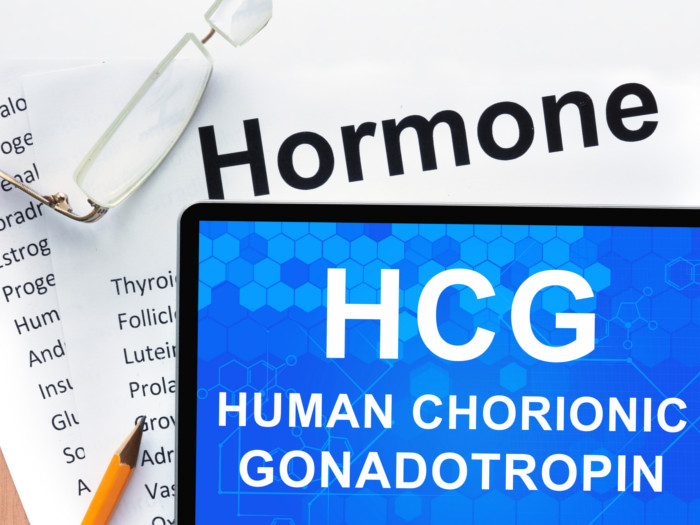The HCG diet is a highly controversial diet for weight loss that includes calorie restriction and hormonal injections.
What is the HCG Diet?
The HCG diet consists of reducing caloric intake to as little as 500 calories per day, in addition to the injection of HCG – human chorionic gonadotropin – to stimulate weight loss. HCG is a hormone-based protein that increases significantly when a woman becomes pregnant, stimulating an increase in metabolism and a number of other shifts in hormonal activity. Its effects on the body including breaking down stored fat, which is why people use this diet for rapid weight loss. [1]
That being said, studies have found that the effects of going on the HCG diet can be attributed to the extreme reduction in calories alone, arguing that the addition of an HCG injection doesn’t make a difference in calories burned or weight loss. While any calorie-restriction diet will result in measurable weight loss, there are also many dangers of reducing your nutrient intake to such an extreme degree. [2]

HCG is a highly controversial diet. Photo Credit: Shutterstock
HCG Diet Plan
The HCG diet plan consists of three different phases, the loading phase, weight loss phase, and maintenance phase.
Loading Phase
Although this diet is known for its intense caloric restrictions, the first phase includes eating a high-calorie and high-fat diet for two days to load up the fat reserves in your body. This is in conjunction with using the HCG injections or drops, which will stop fat storage in the body during the rest of the diet. [3]
Weight Loss Phase
During this second phase, you reduce your caloric intake to 500 calories per day, along with the regular use of HCG drops or injections. This is the main portion of the diet and will last for between 20 and 45 days. During this time, you will experience the majority of your weight loss, due to the extreme calorie deficits. However, the HCG injections or drops will metabolize fat in your body to make up for the caloric loss. [4]
Maintenance Phase
In this final phase, you will increase your caloric intake to between 1,200 and 1,500 calories per day, but these foods should remain very low in fat. You will also stop taking the HCG injections or drops during this phase. You may experience additional weight loss in this phase, but the goal is to stabilize your weight and have your body adjust to regular calorie intake. [5]
Side Effects
As mentioned above, this diet is highly controversial, due to the conflicting results of studies about the true metabolic effects of HCG injections or supplementation. Some of the common side effects of following this diet include:
Heavy menstruation (due to the hormonal increase)
- Excess hunger
- Erratic heartbeat
- Headaches
- Migraines
- Fatigue
- Restlessness
More serious side effects include:
- Ovarian hyperstimulation syndrome
- Weight gain
The body usually goes into starvation mode, as a result of low caloric intake. This can actually slow down the metabolism to protect calorie and fat stores. Be sure to speak with a doctor before beginning this extreme and heavily debated diet. [6]
